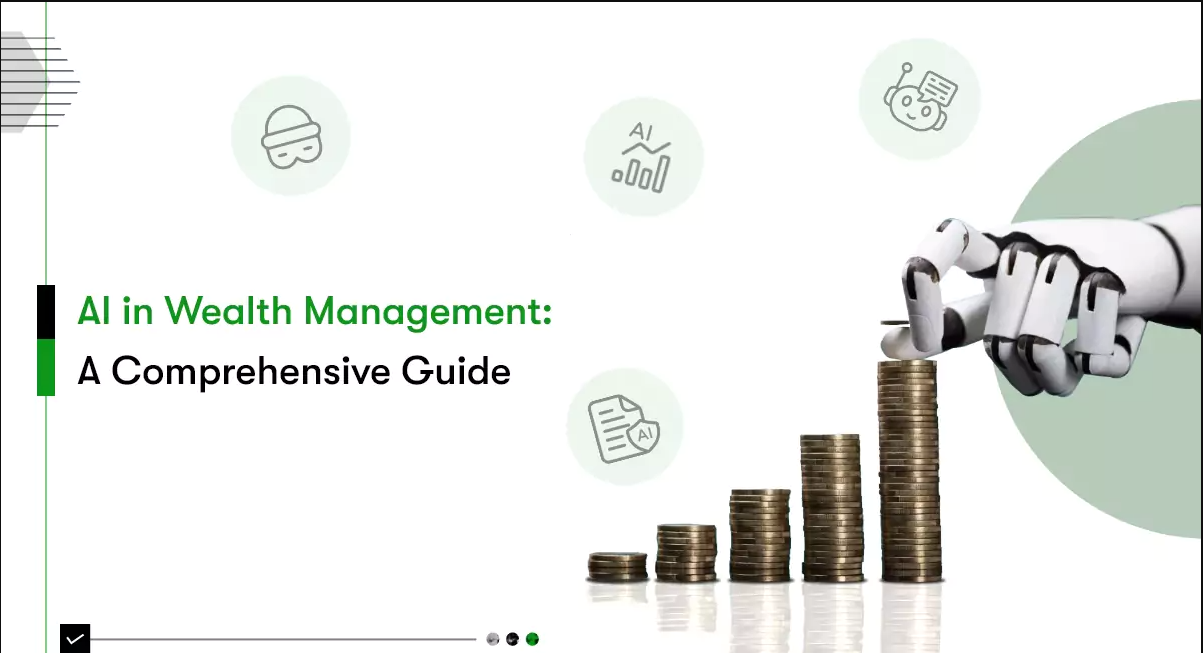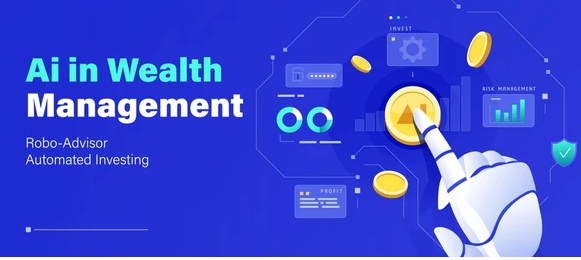Robo-Advisors and Payment Automation: The Role of AI in Wealth Management
 Kishore Challa
Kishore Challa
Introduction
Artificial Intelligence (AI) has become a transformative force in the financial industry, particularly in wealth management. Robo-advisors and payment automation systems are reshaping the way individuals and institutions manage assets, conduct transactions, and make financial decisions. These AI-driven solutions enhance efficiency, reduce costs, and provide personalized financial services, making wealth management more accessible and scalable. This research note explores the role of AI in wealth management, focusing on robo-advisors and payment automation, their advantages, challenges, and future implications.
The Rise of Robo-Advisors
Robo-advisors are digital platforms that provide automated, algorithm-driven financial planning services with minimal human intervention. These platforms leverage machine learning, big data analytics, and predictive modeling to analyze financial markets and recommend investment strategies tailored to individual risk profiles.
How Robo-Advisors Work
Client Profiling – Users answer questionnaires regarding their financial goals, risk tolerance, and investment preferences.
Algorithmic Decision-Making – AI-driven algorithms process vast amounts of financial data to construct diversified portfolios.
Continuous Monitoring and Rebalancing – Robo-advisors track market trends and adjust portfolios accordingly, optimizing returns while mitigating risks.
Low-Cost, Scalable Solutions – Unlike traditional wealth managers who charge high fees, robo-advisors offer affordable services, making investment opportunities more inclusive.

Eq.1.Risk Management with AI-Driven Value at Risk (VaR)

Advantages of Robo-Advisors
Cost Efficiency – Lower management fees than traditional financial advisors.
Accessibility – Enables individuals with limited capital to access professional financial services.
Objective Decision-Making – Eliminates emotional bias in investment decisions.
24/7 Availability – AI-powered systems operate round-the-clock, continuously analyzing market conditions.
Challenges and Limitations
Lack of Human Touch – Some investors prefer human advisors for complex financial planning.
Algorithmic Limitations – Market volatility and unforeseen events can challenge AI predictions.
Regulatory and Ethical Concerns – Compliance with evolving financial regulations and ensuring data privacy remain key challenges.
AI in Payment Automation
Payment automation refers to the use of AI-driven technologies to facilitate seamless, real-time financial transactions, including fund transfers, bill payments, and digital banking services. AI enhances security, fraud detection, and transaction efficiency, making financial transactions faster and more reliable.
Eq.2.AI-Driven Fraud Detection (Anomaly Detection)

How AI-Powered Payment Automation Works
AI-Driven Fraud Detection – Machine learning algorithms analyze transaction patterns to detect and prevent fraudulent activities.
Automated Transaction Processing – AI streamlines payment workflows, reducing manual intervention and human error.
Smart Contract Integration – Blockchain-based AI solutions enable self-executing contracts, ensuring secure and transparent transactions.
Predictive Analytics for Cash Flow Management – AI assesses spending behavior and predicts financial needs, helping businesses and individuals optimize cash flow.

Advantages of AI in Payment Automation
Speed and Efficiency – Real-time processing reduces transaction delays.
Enhanced Security – AI-driven fraud detection minimizes financial risks.
Reduced Operational Costs – Automation lowers administrative expenses.
Personalized Banking – AI-powered financial assistants provide tailored payment solutions.
Challenges in Payment Automation
Cybersecurity Risks – AI systems remain vulnerable to hacking and cyberattacks.
Regulatory Compliance – Adhering to financial regulations and data protection laws is critical.
Technical Barriers – AI implementation requires significant investment and infrastructure.
Future of AI in Wealth Management
The integration of AI into wealth management is expected to evolve further, driven by advancements in deep learning, quantum computing, and blockchain technology. The future will likely see:
Hyper-Personalized Investment Strategies – AI will refine portfolio management to offer real-time, customized investment solutions.
Decentralized Finance (DeFi) Integration – AI-powered platforms will facilitate seamless peer-to-peer financial services.
Voice-Activated Financial Assistants – AI-driven virtual advisors will enhance client interactions through natural language processing.
Greater Regulatory Oversight – Stricter compliance frameworks will shape AI-driven financial services.

Conclusion
AI-driven robo-advisors and payment automation are redefining wealth management by enhancing efficiency, accessibility, and security. While challenges such as regulatory concerns and cybersecurity risks persist, the benefits of AI in financial services outweigh the drawbacks. As AI technologies continue to advance, the financial industry will witness an era of smarter, data-driven wealth management solutions that empower individuals and businesses alike
Subscribe to my newsletter
Read articles from Kishore Challa directly inside your inbox. Subscribe to the newsletter, and don't miss out.
Written by
